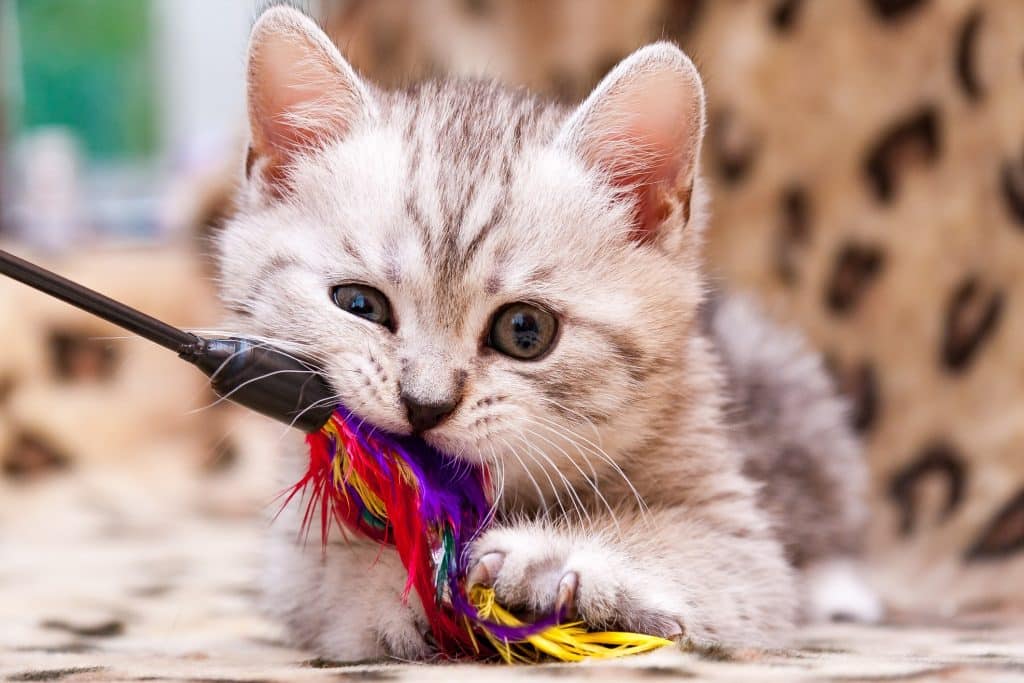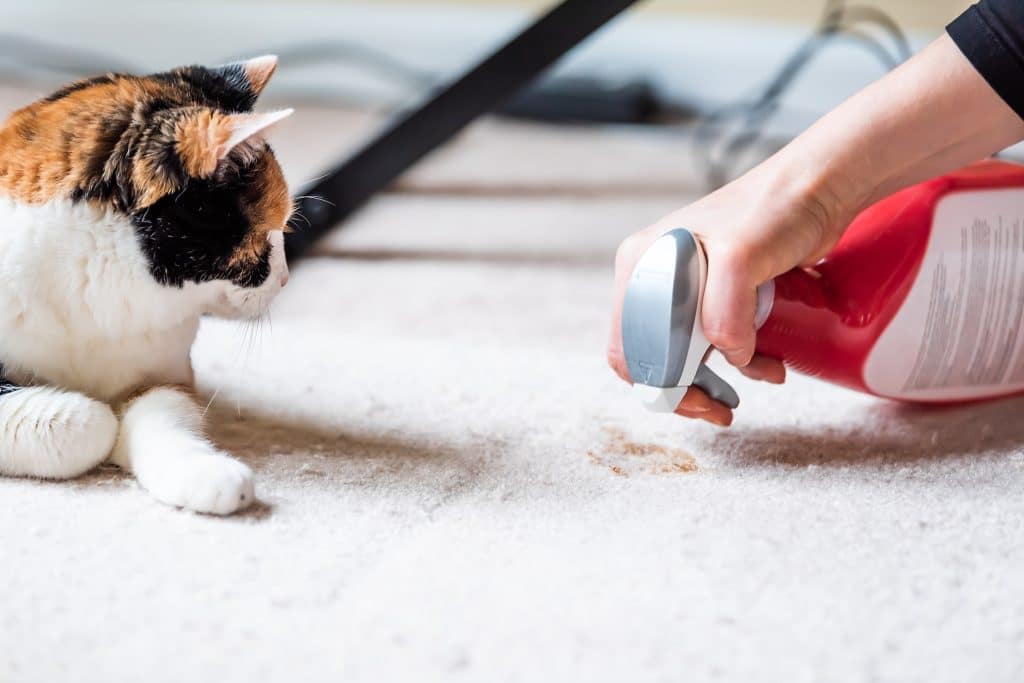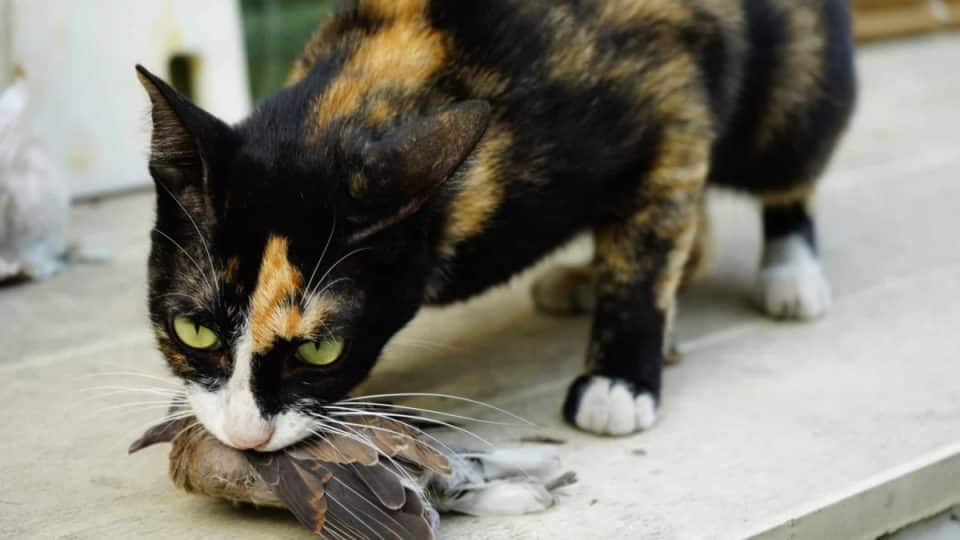You might love receiving chocolates or flowers as gifts. But, unfortunately, your cat didn’t get the memo. Instead, they proudly show you tiny mice or birds. But, while your cat bringing you a dead animal might not seem like the most thoughtful gift, their intentions are probably pure.
“As strange as it sounds, cats bringing you a dead animal is actually a very sweet behaviour,” says Joey Lusvardi, certified cat behaviour consultant and owner of Class Act Cats. Your cat might be showing their affection in their own (admittedly, gross) way.
If you’re curious to learn more, read on to discover three possible reasons why your cat brings you dead animals as gifts. Plus, get tips on discouraging this behaviour and safely disposing of your cat’s presents.
Why Do Cats Bring You Dead Animals?
Lusvardi says there are a few schools of thought about why cats bring dead animals. While we can’t directly ask cats why, he explains that one of the following explanations could be at play.
They’re instinctive hunters
Your little hunter comes by their behaviour naturally. Hunting is so deeply ingrained that many cats will do it even when not hungry. So when cats hunt for fun, bringing the fruits of their labour home is only natural.
However, Lusvardi says if your cat is hungry or experienced food insecurity in the past, they may be less likely to share their kill with you and might instead hide it away for later.
They’re trying to nurture you
“Mother cats will bring their kittens dead or severely maimed prey as a way of getting them used to hunting when they’re a few weeks old,” Lusvardi explains. This allows kittens to practise on an easy target and hone their hunting skills.
So, when your cat brings you dead animals, it might be because they think you’re a terrible hunter and want to help you practise. While that might sound a bit insulting on the surface, it’s one of many ways cats show you their love.
“Being a bad hunter is a survival threat,” Lusvardi adds. “So your cat’s letting you know they want to help you survive.”
They view you as part of the group
Feral cats often live together in groups called colonies. In these groups, female cats often care for kittens that don’t belong to them, and kittens usually eat first in a social group.
By gifting you a dead animal, Lusvardi says, your cat might be trying to signal that you’re part of their group. Essentially, they might view you as part of the pack—or clowder.
Is Hunting or Bringing Home Dead Animals Risky for Cats?
While hunting and gifting dead animals is a natural behaviour for cats, that doesn’t mean it comes without risks. “Cats risk getting injured depending on what type of prey they’re going after,” Lusvardi explains. For example, they might contract a parasite from an infected animal.
Beyond potentially harming themselves, your cat’s hunting habits could also impact your local wildlife. According to research published in Nature, domestic cats kill anywhere from 1.3–4 billion birds and 6.3–22.3 billion small mammals annually in the United States alone. This makes cats one of the country’s most significant non-human causes of animal death.
Moreover, most animals cats prey on are native species, which can have severe consequences in ecosystems that evolved without felines in the food chain. In short, it’s best to curb your cat’s hunting habits, if you can.

iStock/SunRay BRI Cattery RU
How to Stop Your Cat from Bringing You Dead Animals
According to Lusvardi, since hunting is so deeply ingrained in cats, you won’t be able to stop the behaviour entirely. That said, there are a few ways you can discourage your cat from bringing you presents in the first place.
1. Restrict outdoor time
The easiest way to stop your cat from hunting is to keep an eye on them outside. That said, cats have a natural need to roam and explore and so this may not always be fair or possible. Ways you can still let your cat enjoy the sunshine and fresh air while keeping watch include:
- walking them on a leash or harness
- letting them hang out in an outdoor tent
- installing a catio
- supervising them while they’re outdoors
2. Increase playtime
Alternatively, you might try to curb your cat’s hunting instinct by satisfying it in other ways. For example, breaking out a wand toy perfect for chasing and batting. By stalking and pouncing on the toy, your little hunter can engage their instincts without harming a real animal.
Lusvardi says adding just one to two short play sessions every day could help make a difference in curbing your cat’s desire to hunt.
3. Offer enrichment toys
If you’re running low on time or want a way to entertain your cat while you’re out, certain enrichment toys could help your cat entertain themselves without having to bring dead animals inside. These options include:
- puzzle toys
- balls and track toys
- electronic toys, like automatic lasers

iStock/krblokhin
How to Safely Dispose of Your Cat’s Dead Animal Gifts
Sometimes, preventing your cat from hunting is easier said than done. So, if your kitty dropped a fresh new ‘gift’ on your carpet, how should you get rid of it?
Rodents like mice and rats can carry diseases that humans can contract. So, it’s important not to touch the animal and use gloves or a plastic bag to pick it up and dispose of it in your waste bin. You can then clean the surrounding area with pet-safe cleaning products.
If your cat brings home a dead bird that you suspect has avian flu, it’s important to report this to the Department for Food and Rural Affairs. You can do this online or by calling 03459 33 55 77.
Cleaning up dead animals may not be a fun chore. But remember, your cat didn’t bring home a kill to make your life harder. Instead, they most likely give you ‘gifts’ because they view you as one of their favourite people or want to help you level up your hunting skills.



